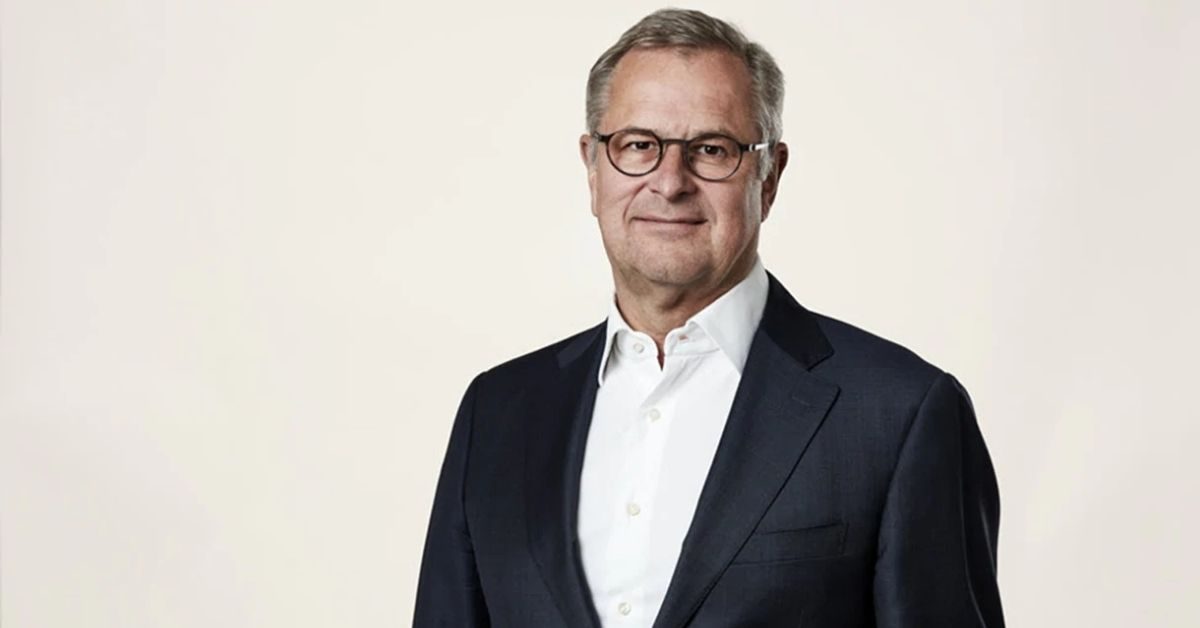Christmas trading will be safe from supply chain problems, the boss of shipping firm Maersk has told the BBC – adding, “at least that’s what I’m hearing from our customers”.
The company handles almost 20% of the world’s shipping containers.
Chief executive Soren Skou, said the firm is chartering more ships, keeping ports open longer and has opened more warehouses to help.
The firm is doing “everything” it can to alleviate the problems, he said.
There have been recent warnings in the UK and the US that logjams at ports will lead to shortages at Christmas.
Mr Skou said that a shortage of workers in the ports to unload ships and a lack of truckers was behind the problems.
A Road Haulage Association (RHA) survey of its members estimates there is now a shortage of more than 100,000 qualified drivers in the UK. That number includes thousands of drivers from European Union (EU) member states who were previously living and working in the UK. There are also shortages across Europe and the US.
Mr Skou estimated that approximately 300 large container ships around the world are sitting waiting outside ports. Almost 80 of these, he added, were in Los Angeles, with a “few” outside Felixstowe and others stuck by Chinese ports including Shanghai and Ningbo.
Demand remains strong
This widespread congestion was triggered by a collapse in demand during the early stages of the pandemic. That was followed by a period of frantic activity, as people who were forced to stay at home rather than travel or socialise, ordered large quantities of consumer goods.
Mr Skou, who runs the world’s biggest shipping firm, said this shows no sign of easing: “The reality is that consumer demand is strong and at the same time our customers inventories are low.”
“They both need to serve the consumer here and now, but also rebuild inventories and that’s why we have an unprecedented demand situation”.
The demand has meant Maersk and other shipping companies have been able to charge record prices. The Danish company’s pre-tax profits rose fivefold to $5.9bn for the July to September period.
Last week Japanese cargo line Ocean Network Express reported a more than eight fold jump in profits for the same period, to $4.2bn.
One of UK’s biggest toy retailers, The Entertainer, recently warned delays at UK ports will result in shortages this Christmas.
In the US, the port of Los Angeles has started operating 24 hours a day to clear a backlog of cargo ships which has led to shortages. White House officials warned that there “will be things that people can’t get” during the holiday season, despite President Biden appointing a bottlenecks Czar.
More ships waiting
Simon Heaney of the maritime research firm Drewry, said Maersk’s mitigations might not be enough. Mr Heaney explained that “port congestion is worsening while the number of ships waiting outside major ports around the world is increasing”.
The brief closure of some big container terminals due to China’s coronavirus restrictions, extreme weather events and a rise in the Delta variant of coronavirus, are each playing a part Mr Heaney said.
Mr Heaney added that opening ports for longer won’t help if there aren’t enough staff to run them.
90% of global trade is moved by sea and with demand having shown no sign of easing, the shipping industry is looking to tackle its impact on climate change.
It’s responsible for about 2% of carbon emissions, meaning that if the industry was a country it would be the sixth biggest polluter, above Germany.
The UN’s International Maritime Organisation (IMO) is aiming for a 50% reduction in greenhouse gas emissions by 2050 compared to 2008 levels.
Climate change ambitions
As world leaders meet to tackle climate change in Glasgow Mr Skou was critical of the targets set by the UN body that oversees his industry: “The ambition level at the IMO so far has been quite limited”.
“We as Maersk certainly are pushing hard for that to be reducing by 100% in 2050 and we believe it can be done”.
On Monday at the COP26 climate summit in Glasgow Denmark’s Prime Minister Mette Frederiksen said: “We urge the IMO to take action to set ambitious targets to achieve zero emission shipping by 2050”.
“Carbon-neutral shipping is vital to reaching our climate goals,” he added. Shipping was not included in the Paris climate agreement.
The International Chamber of Shipping has backed a $5bn fund to develop carbon free shipping and overcome a lack of investment in the technology required. Maersk plans to launch the world’s first carbon neutral cargo ship in 2023.
However, Mr Skou said the slow progress doesn’t mean we need to move fewer goods around the world to tackle climate change.
“I think we just have to get to the point that we can use different fuels,” he added.
Source: BBC






